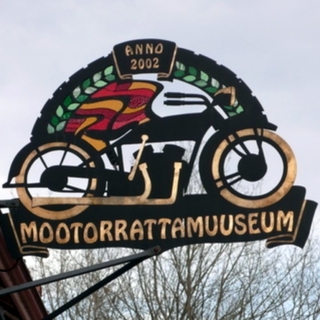Exploring the rich history of motorcycles
Motorcycles have long captured the imagination of people around the world, symbolizing freedom, adventure, and the thrill of the open road. From their humble beginnings to their status as cultural icons, motorcycles have a rich and fascinating history that continues to evolve. This exploration delves into the origins, development, and cultural impact of motorcycles, offering a comprehensive look at how these machines have shaped and been shaped by society.
The Early Beginnings of Motorcycles
The story of motorcycles begins in the late 19th century, with the invention of the first motorized bicycle. In 1885, German inventors Gottlieb Daimler and Wilhelm Maybach created the "Reitwagen," a wooden-framed vehicle powered by a single-cylinder engine. This invention laid the groundwork for the development of motorcycles as we know them today.
As the 20th century dawned, motorcycle design rapidly evolved. Early models were often little more than bicycles with engines attached, but innovations in engineering soon led to more sophisticated designs. By the 1920s, motorcycles featured advanced suspension systems, improved braking mechanisms, and more powerful engines, making them a popular mode of transportation and recreation.
The Golden Age of Motorcycles
The mid-20th century marked the golden age of motorcycles, with the rise of iconic brands such as Harley-Davidson, Triumph, and Indian. These companies not only produced high-quality machines but also cultivated a sense of identity and community among riders. The distinctive styles and sounds of these motorcycles became synonymous with the spirit of adventure and rebellion.
During this period, motorcycles became ingrained in popular culture, thanks in part to their portrayal in films and literature. Movies like "Easy Rider" and "The Wild One" cemented the image of the motorcycle as a symbol of counterculture and freedom. This cultural significance helped to solidify the motorcycle's place in the public imagination.
Technological Advancements in Motorcycles
Technological advancements have played a crucial role in the evolution of motorcycles. From the introduction of the electric starter to the development of advanced materials and aerodynamics, engineering innovations have continually pushed the boundaries of what motorcycles can achieve. These advancements have not only improved performance but also enhanced safety and comfort for riders.
Motorcycle racing has been a driving force behind many technological innovations. The demands of competitive racing have led to the development of more powerful engines, better handling, and improved aerodynamics. These advancements have often trickled down to consumer models, enhancing the overall riding experience for enthusiasts worldwide.
The Cultural Significance of Motorcycles
Throughout history, motorcycles have been associated with freedom and rebellion. The open road represents a break from societal constraints, and the motorcycle has become a powerful symbol of individuality and nonconformity. This cultural significance has resonated with generations of riders, making motorcycles a timeless emblem of personal freedom.
Motorcycles hold a unique place in cultures around the world. In some regions, they are a primary mode of transportation, while in others, they are a symbol of status and leisure. From the bustling streets of Southeast Asia to the scenic highways of the United States, motorcycles have become an integral part of the cultural landscape, reflecting the diverse ways in which they are embraced by different societies.
The Future of Motorcycles
As the world moves towards more sustainable forms of transportation, the motorcycle industry is also undergoing a transformation. Electric motorcycles are becoming increasingly popular, offering a cleaner and quieter alternative to traditional gas-powered models. This shift represents a significant step forward in reducing the environmental impact of motorcycles while maintaining the thrill of riding.
The push for sustainability is reshaping the motorcycle industry in other ways as well. Manufacturers are exploring new materials and production methods to reduce waste and improve efficiency. As these efforts continue, the future of motorcycles looks promising, with a focus on innovation and environmental responsibility.






Comments (0)